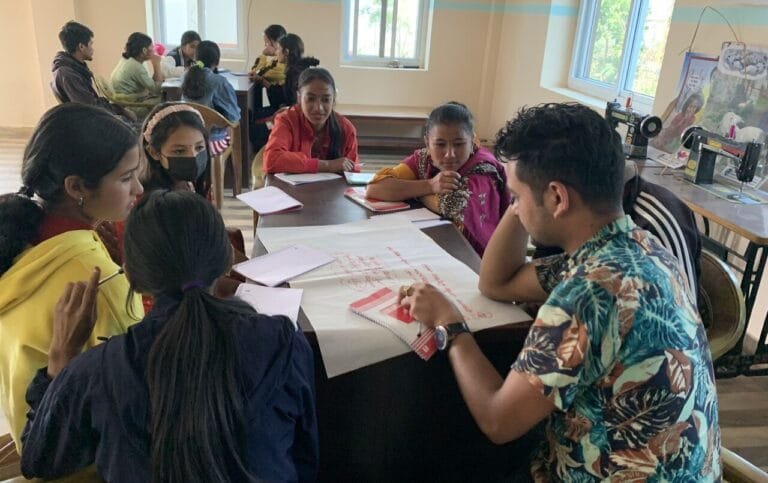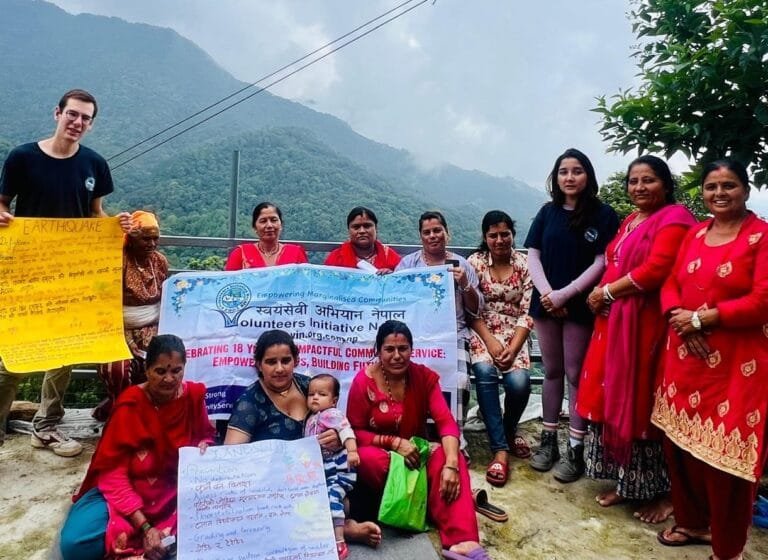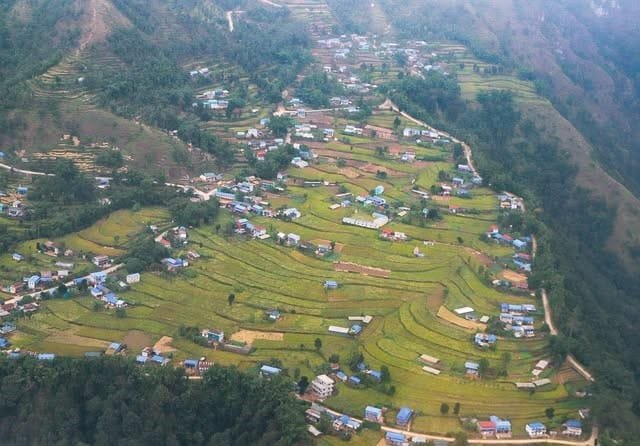Table of Contents
Introduction
What if the simple act of volunteering could change the trajectory of a woman’s life?
In Nepal, women face unique challenges that limit their education, employment, and leadership opportunities. Despite some progress in women’s rights and education, gender inequality remains a major issue. Volunteering in Nepal offers a powerful solution to address these challenges. By contributing time and expertise, volunteers can empower Nepali women, enhance their access to education, and uplift entire communities.
This article explores how volunteering help Empower Nepali Women and can transform women’s lives. If you’re looking for ways to contribute to a meaningful cause while gaining personal and professional growth, read on to discover how you can make a difference in Nepal.

1. Understanding Women’s Empowerment in Nepal
Current Situation of Women in Nepal
Nepal has made significant strides in women’s education and rights in recent decades. According to the World Bank, the literacy rate for women in Nepal has risen to around 63% as of 2020, compared to 40% in the early 2000s. However, challenges remain. Many women in rural areas still struggle with limited access to education, early marriage, and gender-based violence. Around 40% of girls in Nepal are married before the age of 18, significantly impacting their education and life prospects.
Gender equality is another persistent issue. Despite legal reforms, the gender wage gap in Nepal remains high, and women are underrepresented in leadership and decision-making roles. These obstacles prevent women from fully participating in the country’s social and economic progress.
Why Women’s Empowerment Matters
Empowering women is essential for developing Nepal and the global community. When empowered, women become agents of change. According to the United Nations, education is one of the most effective strategies for reducing poverty. Educated women are more likely to invest in the health and education of their children, thereby lifting entire families out of poverty.
Empowerment also leads to improved women’s rights and greater equality in society. By participating in leadership roles and becoming entrepreneurs, women can influence social change and create a ripple effect that transforms communities.
How Volunteering Fits into the Picture
Volunteering in Nepal offers an effective way to tackle these challenges. Volunteers can contribute by teaching, mentoring, and advocating for women’s rights. Through these efforts, they play a key role in fostering empowerment and improving the social standing of Nepali women.
2. The Role of Volunteering in Empowering Nepali Women
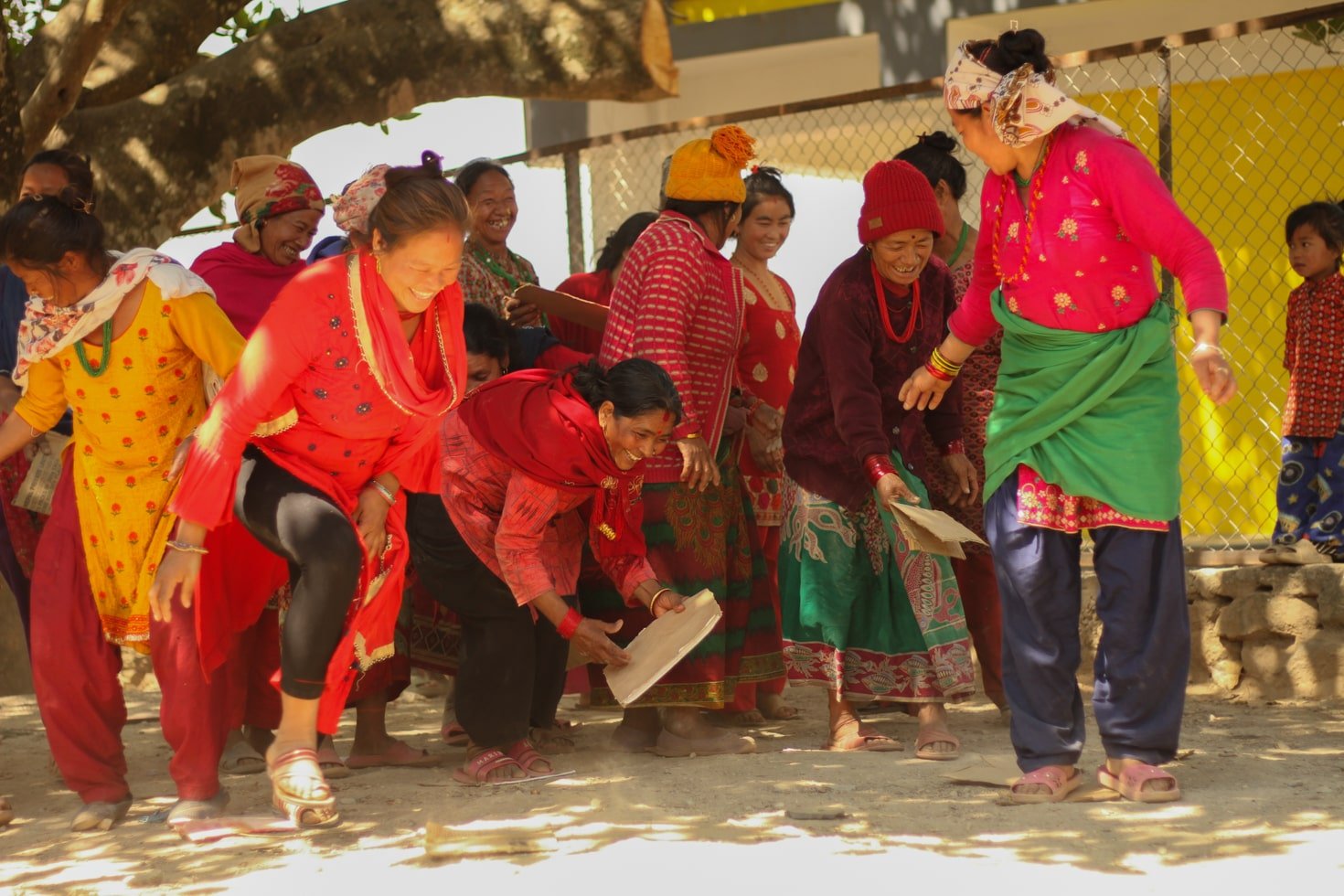
Key Areas Where Volunteers Can Make a Difference
Volunteers can support Nepali women in various ways, each addressing a specific need. Here are some key areas where your time and skills can make a lasting impact.
1. Education and Skills Development
One of the most critical ways to empower women is through education. Many women, especially in rural areas, are deprived of basic education, which hinders their ability to achieve financial independence and improve their quality of life. By volunteering to teach or mentor women and girls, you can give them the skills they need to break cycles of poverty.
Volunteer programs in women’s education in Nepal often include teaching English, mathematics, computer skills, and vocational training. Volunteers may also mentor women in navigating the education system or provide emotional support to help them stay in school.
2. Health and Wellbeing
Access to healthcare remains limited for many women in Nepal. Volunteers with healthcare experience can assist in providing maternal health care, family planning education, and essential health check-ups. According to UNICEF, maternal mortality in Nepal is still high, with around 170 deaths per 100,000 live births. Volunteers in healthcare programs can help reduce these statistics by educating women on prenatal care, hygiene, and nutrition.
3. Entrepreneurship and Leadership
Women’s economic independence is key to empowerment. By volunteering in entrepreneurship programs, you can help women develop business skills, learn about financial literacy, and create small businesses. Some programs focus on leadership training, assisting women to gain the confidence and skills they need to take on leadership roles in their families and communities.
By helping Nepali women gain these skills, volunteers empower them to create sustainable futures for themselves and their families.
4. Advocacy and Awareness
Volunteers can also significantly advocate for women’s rights and raise awareness about gender equality. Volunteers can help amplify women’s voices by working with local organizations and ensuring policymakers hear their concerns. Raising awareness about gender-based violence and promoting legal rights for women can change attitudes and create long-term social change.
Real-World Impact Examples
A great example of how volunteering for women’s education in Nepal can make a difference is the case of a rural school in the Gorkha district, where a group of volunteers helped set up a tutoring program for girls. As a result, secondary school enrollment for girls increased by 50% in the first year alone. This program helped break barriers related to early marriage and allowed young women to pursue further education.
3. Benefits for Volunteers from High GDP Countries
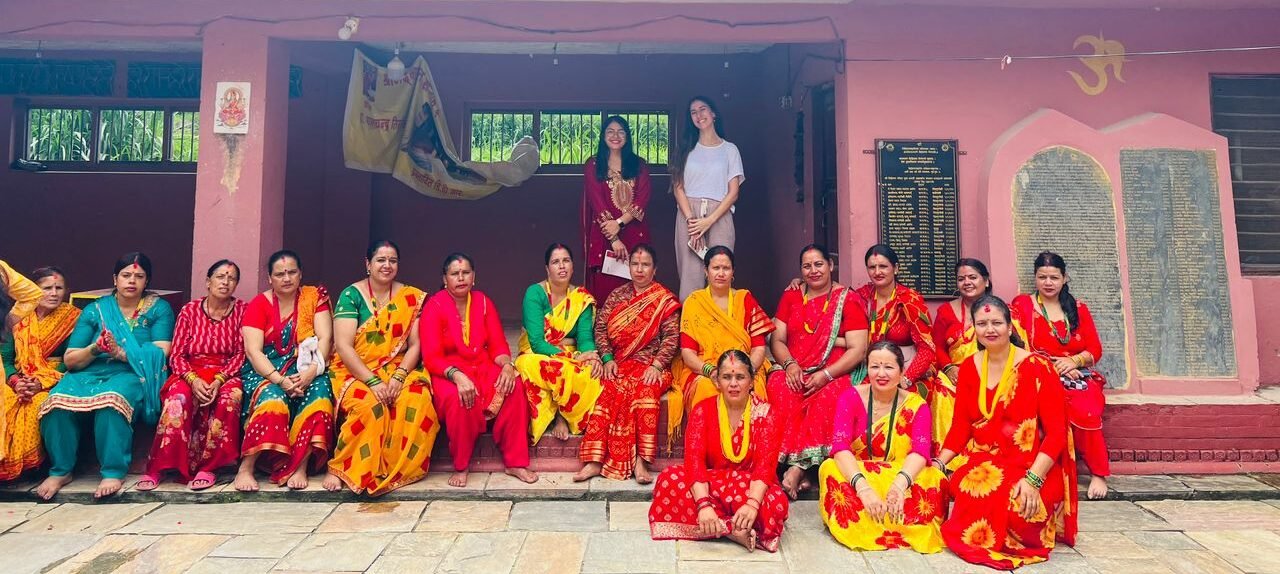
While the primary goal of volunteering is to make a positive impact, the experience can also be enriching for volunteers. Here are some benefits that you can expect:
1. Cultural Exchange and Personal Growth
Volunteering abroad provides a unique opportunity for cultural exchange. Nepali culture will teach you about local customs, traditions, and social structures. This experience will help you develop a deeper understanding of the challenges that women face in Nepal. Additionally, volunteering can enhance your leadership, adaptability, and cross-cultural communication skills, which will be valuable in any career.
2. Building Global Networks
Volunteering in Nepal allows you to connect with like-minded people worldwide. Whether you’re working with other international volunteers or local professionals, these connections can lead to new friendships, collaborations, and career opportunities.
3. Professional Development
For those pursuing careers in international development, education, health, or NGOs, volunteering in Nepal can significantly enhance your resume. You’ll gain hands-on experience in community development, leadership training, and education programs, all highly sought-after professional skills.
4. Enriching Experiences and Lasting Memories
Perhaps the most rewarding aspect of volunteering is the emotional fulfillment that comes from seeing the positive impact of your work. Helping a Nepali woman overcome challenges and reach her potential creates bonds that last a lifetime. Volunteers often return home with a renewed sense of purpose and a deeper appreciation for the power of education and community.
4. How to Get Involved in Volunteering in Nepal

If the idea of volunteering in Nepal inspires you, here’s how you can get started:
1. Volunteer Opportunities for High GDP Country Residents
There are many reputable organizations offering volunteering opportunities in Nepal. Some programs focus on women’s education, while others target healthcare, community development, or leadership training. Organizations like Volunteers Initiative Nepal (ViN) and Maiti Nepal are excellent places to start your search for volunteer placements.
2. Application Process
You will usually need to submit a resume, a cover letter, and possibly references or proof of previous volunteer experience to apply. Depending on your position and the project’s location, some organizations may require medical check-ups or vaccinations.
3. Considerations Before Volunteering
Before volunteering, consider practical matters like travel insurance, visa requirements, and language barriers. Learning some basic Nepali can be incredibly helpful, allowing you to communicate better with the local community. Additionally, understanding Nepali customs—such as the importance of respect for elders and the value placed on hospitality—will make your stay more enjoyable and respectful.
5. Volunteering as a Sustainable Way to Promote Long-Term Change
How Volunteers Contribute to Sustainable Development
Volunteering for social change isn’t just about temporary aid—it’s about creating lasting empowerment systems. Volunteers help build local capacity by teaching valuable skills long after the program ends. By empowering local leaders and educators, volunteers contribute to long-term development, which is crucial for sustainable social change.
The Ripple Effect of Empowered Women
When women are empowered, they positively influence their communities. Empowered women often become role models for younger generations, showing them they can pursue education, start businesses, and become leaders. This creates a ripple effect of change that reaches far beyond the individual woman.
6. Testimonials and Success Stories from Volunteers
Highlight Volunteer Experiences
“Volunteering in Nepal opened my eyes to the challenges Nepali women face. My work in a rural school made me realize the power of education to change lives.” – Lisa, USA.
Community Feedback
“The volunteer program in our village helped me learn new skills and gave me the confidence to start my own small business. I am now financially independent and able to support my family.” – Bhawana Shrestha
Conclusion
Volunteering in Nepal offers an incredible opportunity to make a meaningful impact on the lives of Nepali women. By contributing your time and skills, you help empower Nepali women through education, healthcare, and leadership development, paving the way for lasting social change.
Are you ready to make a meaningful difference? Start your journey today by applying for a volunteer program in Nepal or contact us and empower women through education, leadership, and community support. Apply now to volunteer.


